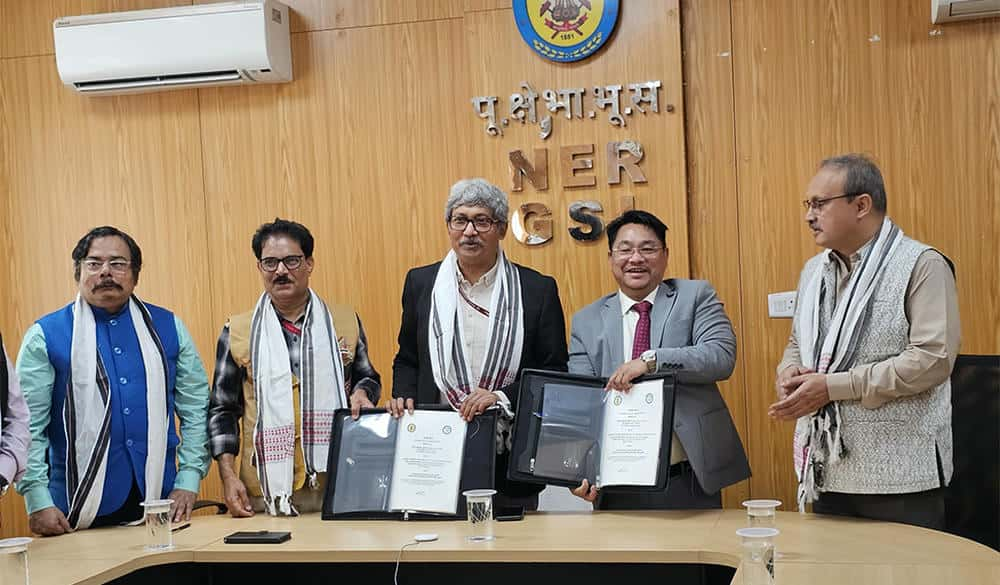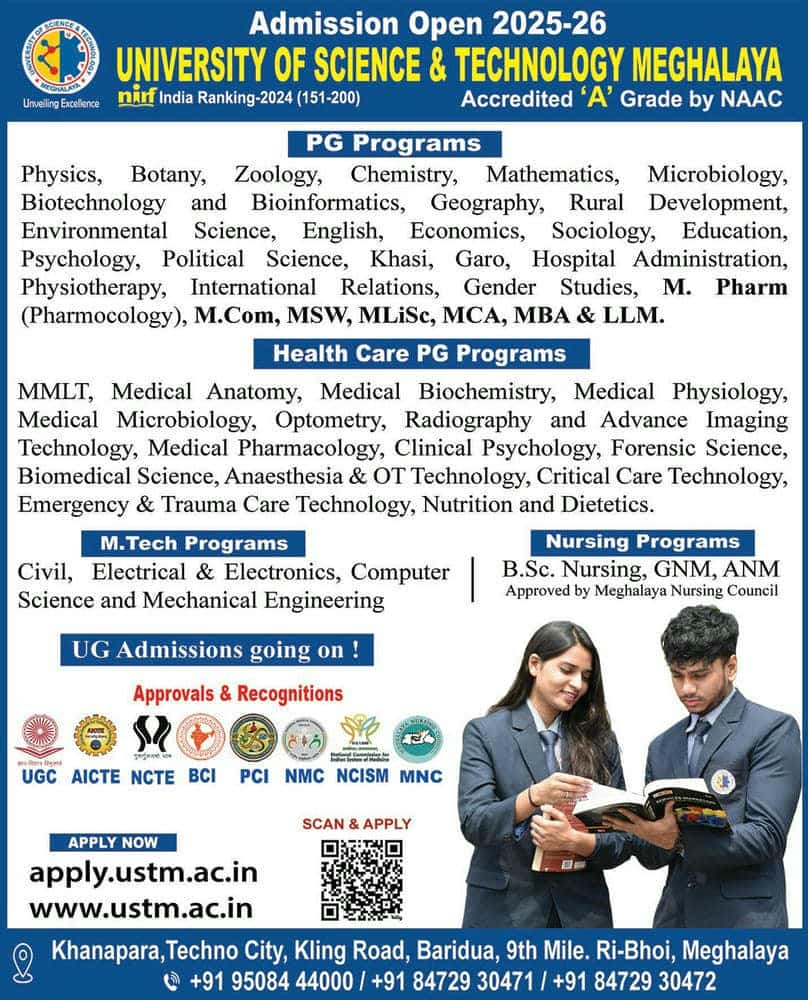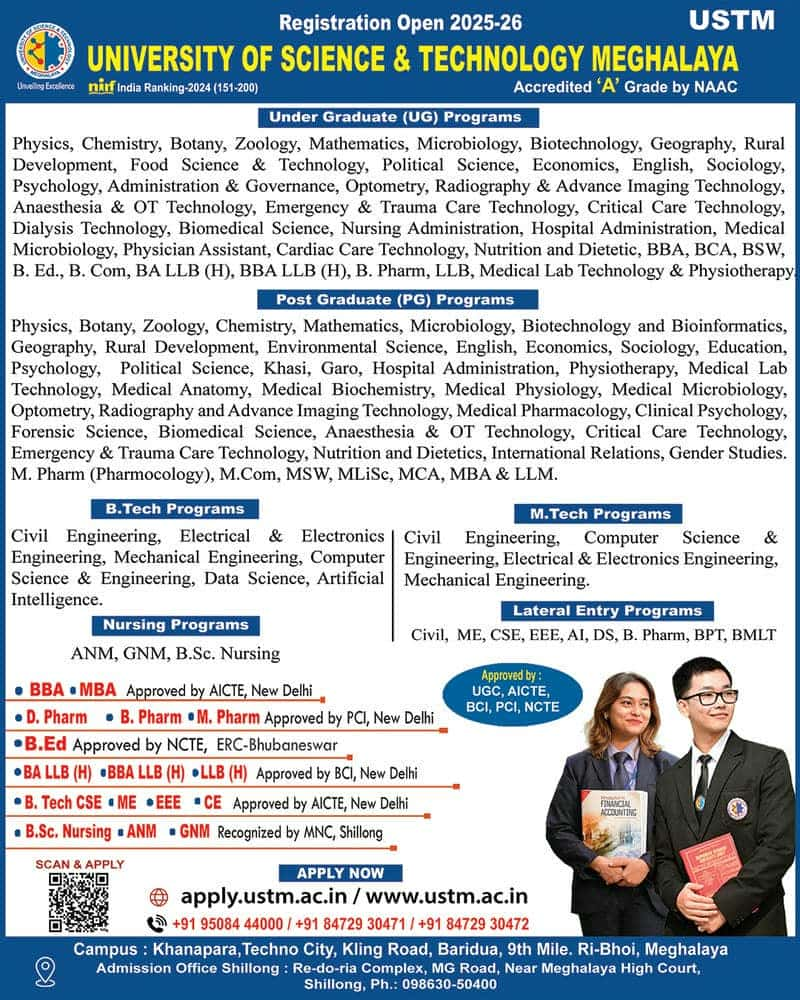GSI collaborates with CESHS to unlock Northeast India’s geothermal potential

In a move set to boost scientific collaboration in Northeast India, the Geological Survey of India (GSI) and the Centre for Earth Sciences and Himalayan Studies (CESHS), Arunachal Pradesh, signed a Memorandum of Understanding (MoU) in Shillong on Monday. The partnership aims to advance studies in geothermal energy and geosciences across Arunachal Pradesh and the wider Himalayan region.
The MoU was signed during the 175th anniversary celebrations of the GSI, held at its North Eastern Region headquarters in Shillong. Senior officials and scientists from both institutions were present.
Describing the agreement as a “milestone,” GSI Director General Dr. Asit Saha emphasized the importance of collaboration in shaping the geological, mineral, hydrological, and broader earth science landscape of the Arunachal Himalaya. “This partnership will enable a deeper understanding of the region’s geological potential, especially in geothermal energy,” Dr. Saha said, affirming GSI’s full support to CESHS.
Founded in 1851, the GSI has been instrumental in India’s scientific and developmental journey—mapping terrains, discovering mineral resources, and contributing to seismic and hydrological research. This legacy was acknowledged by CESHS Director Tana Tage, who said the GSI’s vast contributions have informed policy and propelled national growth.
Tage highlighted the shared vision of the two institutions: “While CESHS is young, we are driven by the same commitment to scientific excellence. This MoU reflects our shared belief in blending traditional knowledge with cutting-edge research.”
He pointed to the Arunachal Himalaya as one of India’s most promising but underexplored geothermal regions. “With this partnership, we hope to tap into sustainable energy sources and bring local knowledge into national conversations on climate and energy,” he said.
The ceremony was attended by key GSI officials including Dr. Saibal Ghosh, Deputy Director General; Dr. Joyesh Bagchi, Additional Director General; all Deputy Director Generals from the Northeast; and several senior scientists.
The agreement marks a new phase of cooperation aimed at unlocking the earth science potential of the Northeast, especially in areas critical for clean energy and climate resilience. Both organizations expressed optimism that this collaboration would pave the way for innovation, resource mapping, and regional development through science.



Leave a Reply